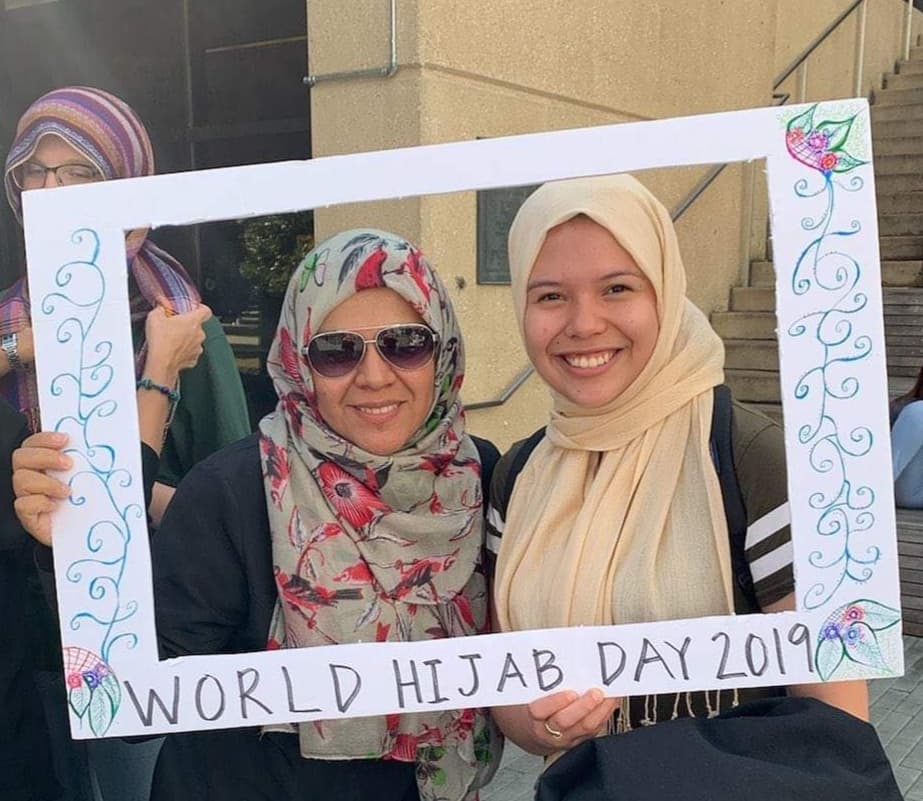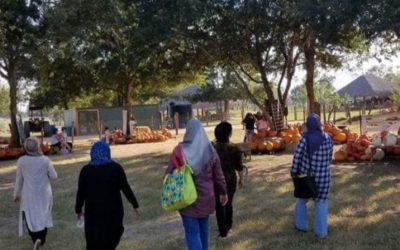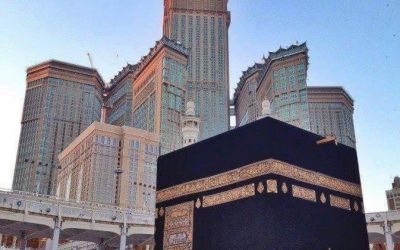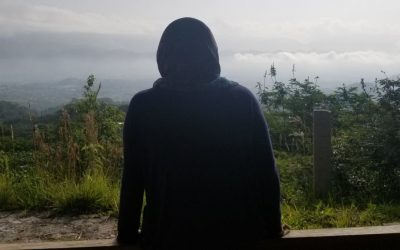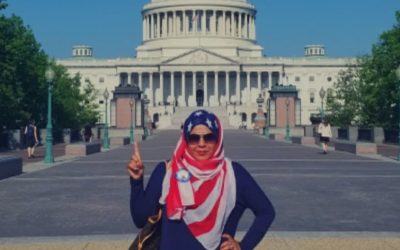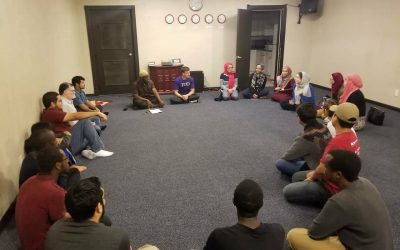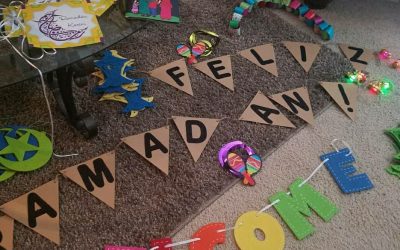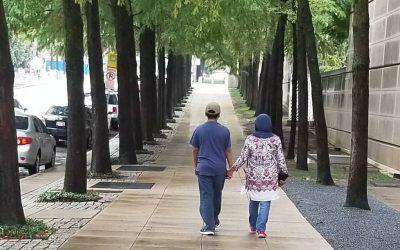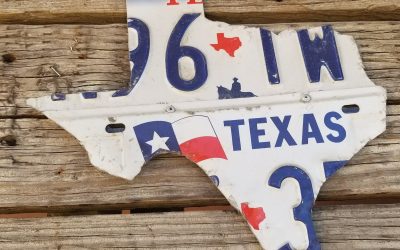
Valuing Their Critical Diversity?
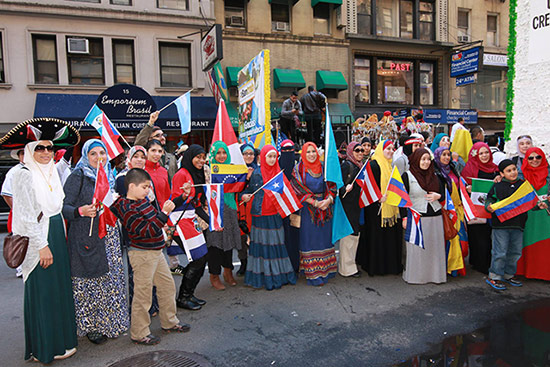
Valuing Their Critical Diversity?
Latino/a Muslims and Their Assimilation into the US Muslim Community: A Reflection from ICNA Baltimore by Guest Writer Yamil Avivi Garcia
I attended the Islamic Circle of North America (ICNA) conference in Baltimore, Maryland on the weekend of April 14-16. This is the second time I attended; in 2011, I attended Hartford’s ICNA conference in Connecticut. ICNA organizes a national conference that brings together U.S. Muslims from all walks of life. It draws a diverse pool of Muslims across race, class, and ethnicity. Muslims of different cultures from the Middle East, Africa, South and Southeast Asia, the United States and Latin/o America are present to reflect their lives in the U.S through an abundance of panels. Along with the immense diversity the conference draws from the U.S. Muslim community, organizers use the conference to reflect on ethnicity-specific dynamics. Latino/a Muslim leaders organized a three–panel segment entitled “La Voz Latina” (The Latino Voice), which engaged Latino/a Muslims in Spanish and raised cultural issues concerning Latino/a identity within and outside the Muslim community.
It has been a while since I had engaged with the Latino/a Muslim community at a mosque or at an event like this. In 2009, I grew intrigued with Latinos/as in Latino America converting to Islam in light of my own ArabLatino identity as a second–generation Colombian American whose paternal grandfather was Arab. It would hit me later, during my attendance at prayer and Qur’an study at the Union City, New Jersey mosque in 2011, that my own cultural origins were also Muslim. During my graduate studies at the University of Michigan, I began to seriously study Arab and Muslim diasporas in Latin/o America as a doctoral candidate in American Culture. I took Associate Professor and Director of Arab and Muslim Studies Evelyn Alsultany’s course on the Middle East in American Studies, which helped me further develop my academic interests in Arabs and Muslims in Latin/o America as well as answer certain questions about my own grandfather’s voyage as an Arab Muslim to Colombia. One of the few pictures I have seen of my young, recently arrived grandfather to Colombia is a Colombian national document entry card that lists him as coming from Syria. However, it is my family’s understanding that my grandfather and great uncle (his brother) came from a town in what would later be Palestine.
Growing up with an Arab–sounding non-Latino first and last name always marked me as different and not quite Latino. “Yamil Avivi” did not coincide with typical first and last Spanish–sounding names among my Latino peers in elementary school and high school. It wasn’t until college that I stopped using my mother’s maiden name, “Garcia,” which I had done since elementary school. I began to use my first name, “Yamil,” and indeed it was the first of several liberating experiences in my early adult life. It was inevitable that people would ask me why I was named “Yamil,” which reinforced my own interethnic and interracial origins as an ArabLatino. Similarly, while spending time with the Union City, New Jersey Latino/a Muslim community between 2009-2011 and reading about the rise of post 9/11 conversions of Latinos/as to Islam, I have come to feel a mutual sense of connection with recent Latino/a converts to Islam who also feel themselves to be between two cultural identities and who are marked as different in a majority Latino/a Christian society.
However, during my participation at ICNA in Baltimore, I felt a new challenge to close the gap between Latino/a Muslims and Latino/a Christians. It was passionately articulated in a way that was not on the agenda in Hartford, which was refreshing. Years ago, in an earlier moment for recently converted Latino/a Muslims, Hartford represented an astounding accomplishment in which leaders engendered a national awareness of a substantially growing Latino/a Muslim population that subsequently organized conference panels around the distinction and solidarity of this ethnicity. Now, years later, the Latino/a Muslim community has continued growing after the momentous launch of the first Latino and Spanish language centered mosque in Houston, Texas. While several of the topics around identity, pride, and empowerment were comparable in Hartford’s and Baltimore’s conferences, not losing likeness with Christian Latinos/as and preserving and enhancing cultural citizenship and pride as Latinos/as was an important thread throughout the discussions of all the panels. Unlike in Hartford, older and newer Latino/a Muslim leaders came together to stimulate organizing around mutual cultural legacies and the current social and institutional needs of Christian Latinos/as and other black and brown ethnics in this Hispanophobic, Islamophobic, and xenophobic Trump Era moment.
Before arriving at the ICNA conference in Baltimore, I was excited to attend The Latino Voice panels. I looked forward to reconnecting with leaders I had met at Union City and Hartford as well as meeting others I had not yet met. Furthermore, I wanted to assess how the conference panels had grown since Hartford in light of the growth of the community and leadership on a national level. To my surprise, though, attendance at the panels was scant, except at the larger session on stories of personal conversion to Islam, which was also well attended by the entire Muslim community at Hartford’s convention. Many of the panelists for this session were the Latino/a leaders at The Latino Voice sessions. On the other panels specific to Latinos/as, these leaders, Wilfredo Amr Ruiz (CAIR- Florida), Ramon Ocasio (Alianza Islamica), Nahela Morales (Humanitarian/Activist/Da iya), Jamal Abdul-Karim (Al Huda School) and Jose Acevedo (Islamic Society of Baltimore), initiated thought-provoking discussions around the consequences of assimilation within the Muslim community and the larger U.S. community and the urgent need for sustaining self-pride of one’s and one’s children’s Latino/a origins. In my view, these were two huge takeaways from these Latino-centered panels.
During the sessions, I felt more connected than ever before as an ally among the Latino/a Muslim leaders and their message to Latino/a Muslims at ICNA to not completely dismiss their Christian Latino/a heritage and origins. Before going to the panels, I was sure that Latino/a Muslim panelists were going to discuss ways to continue engendering a sense of empowered difference and pride amidst both the forbidden elements (haram) and the everyday perpetual discrimination and Muslim xenophobia of dominant Latino culture and society and mainstream U.S. culture and society. But instead, the leaders expressed an acute sense of staying close to one’s Latino cultural origins and earlier lessons of successful ethnic solidarity among Christian Latinos/as. Ramon Ocasio asked rhetorically before his passionate discussion, “Why are the Latino/a Muslims attending the ICNA conference not here?” Ultimately, Ocasio was getting at the consequences of their greater interest to assimilate into a larger Muslim community rather than affirm their ethnic identity and demonstrate ethnic solidarity. Ocasio also pointed out that this preference to fit into a larger Muslim community stemmed from Latino ethnic identities and culture frequently being perceived as second–class and inferior to other cultures. Jose Acevedo said at one panel, “Latino culture is not [all] evil,” to suggest the need to value and not undermine the legacies of Latino/a Muslims’ ethnic past. The leaders continued pointing out the low attendance at the panels to suggest Latino/a Muslims’ preference at ICNA to assimilate to a larger Muslim community, as if their Latino/a identity and culture were inferior or of little value. Acevedo further explained, “Islam is not [only] an Arab thing; it’s not [only] a Desi thing.” Among all the leaders, the clear message was to remain relatable and interconnected with Christian Latinos/as, particularly through the potential work at hand to benefit and enhance the social and political positioning and citizenship of all Latinos/as in the U.S. through grassroots organizing. Both Ramon Ocasio and Jamal Abdul Karim, older Muslim leaders who have been active since the early 1970s, detailed their involvement with Latino ethnic movements and with the Young Lords in light of how such powerful and effective organizing is relevant today for Latino/a Muslims in their alliance with Latinos/as at large and other ethnics in their mutual fight for tolerance, equality, and justice. Wilfredo Ruiz brought up the need to “learn from our own [cultural] history and not reinvent the formula [around ethnic solidarity]” that could richly inform such grassroots and formal political movements.
The most urgent message (in my opinion) was the urgency for Latino/a Muslim parents to confidently convey cultural pride and ethnic solidarity with their Latino/a origins to their children growing up as Latino/a Muslim. Both Ocasio and Abdul-Karim’s early leadership in Latino political ethnic movements of the 1970s raised the need to instill a perception of those organized collectivities and actions as invaluable legacies for the children. Wilfredo Amr Ruiz encouraged Latino/a Muslims to be politically active in today’s Trump moment of Muslim xenophobia for the sake of “opening the doors for our children.” Part of opening those doors involves raising a sense of awareness of the political action and pride in ethnic solidarity from the past that is undoubtedly part of their children’s identity. In her talk, Nahela Morales explained that in raising her half Mexican and half Colombian son, “Who your kids are, really begins at home,” which resonates with the need to be socially and politically active, ethnically proud, and aware of one’s ethnic and cultural legacies and lineages. As a younger leader, Jose Acevedo asserted that parents “…not feeling inferior [within the larger Muslim community and greater U.S. society and culture] is…[what] we have to show our children.” Further, he explained from a Muslim perspective that, “…to be proud culturally, it must start with Islam.” Abdul Karim similarly explained that “Allah instills a multiraciality” that equally dignifies all cultures and ethnicities in such a way that should remind Latino/a Muslims, especially children, that their origins are not second-class and we must not just assume Muslim majority Arab, Desi, and Pakistani cultures are more legitimate than ours. Abdul Karim asserted, “Whatever your roots are, don’t forget [them],” but acknowledge and carry them with deep pride along with being Muslim. It is these messages to our children that promote a sense of self-love, self-worth and the dignity of our Latino origins and encourage us to exude them securely in our fight against second-class citizenship and a feeling of inferiority to other larger Muslim ethnic groups. These leaders convey to parents that Latino culture and ethnicity is rich and powerful and must be equally present with other older Muslim cultures and ethnicities at the table, especially at venues like ICNA.
I leave my reflections with Jose Acevedo’s words about those who attended that weekend’s panels. Acevedo prefaced his talk at one of the panels by saying, “Numbers are deceiving.” In other words, regardless of whether the panels were well or under attended, what matters is who genuinely made the commitment to come. As a non-Latino Muslim, I was drawn to Acevedo’s inviting words to all Latinos/as and non-Latinos/as in the room about getting active and organizing to empower Latino/a Muslims and their children by staying true to their origins always, despite obvious differences in faith. The Latino Voice segment has inspired prospective grassroots organizing. These leaders show the strong potential and ability of ICNA’s national platform to organize others (young people and adults) around selected issues and actions to promote Latino ethnic identity, pride and solidarity in parents and children. Such organizing could bring Latino/a Muslims and their allies more energetically into the fold of the greater Muslim community and bridge the kind of (self-) awareness and (self-)dignity these old and new leaders envisioned that weekend in Baltimore.
Yamil Avivi García (PhD, American Culture, University of Michigan) is a second–generation Colombian American whose paternal Arab and Muslim grandfather immigrated to Colombia between the mid 1920’s and early 1930’s. He researches and teaches classes on Arabs and Muslims in Latin/o America, and is an ally to Latino/a Muslim grassroots and formal political organizing initiatives. You can reach him at milavi@umich.edu.
Recent Posts
Why World Hijab Day?
World Hijab Day is an annual event founded by Nazma Khan in 2013. The event takes place on February 1st each year in 140 countries worldwide. Its stated purpose is to encourage women of all religions and backgrounds to wear and experience the hijab. Event organizers...
Why Fake Friendships Are Ruining You?
Re-Evaluating Friendships from time to time is a healthy habit to create. It should become top priority when we begin questioning friends who do not mirror our happiness or when we begin to see unhealthy patterns that do not resonate to what we hoped for that...
My favorite Season of the Year!
September… The month in which fall arrives my favorite season of the year. The month I was born twice, by birth on the 12th and the day I embraced Islam on the 30th. The month that prepared me for the unexpected changes in my life as my eyes took in the burst of...
How to Prepare for the Journey of your Lifetime, Hajj!
Letter from my Friend to me… Assalaamu alaikum my dear, Firstly mabrook on your intention of Hajj! May Allah grant you an easy journey and accept your Hajj, ameen. I’m so excited and feeling really emotional for you. Before I left for Hajj, people called me to say...
Is Suicide the Only Way OUT?
Suicide, is not the Answer my Friends! When I was about 12 years old I attempted suicide. Yes, you read right. That same year, I was taken away from my abusive home and put into a group home, and was later moved into a foster home which I outgrew. At the time, I...
Why Is Ramadan so Special to me?
I Am A Ramadan Shahada Every year it never fails, the countdown of Ramadan makes me feel a bit nostalgic, excited, happy, grateful and extremely blessed all at once. These feelings tend to become much more intense as we anxiously wait for the arrival of the month...
#RevertsMatters
The countdown has officially begun… I am extremely excited to be participating for the 2nd year in a row in the Embrace’s Converts Conference in Dallas, Texas. Let me start by sharing with you that so much has happened since last year. In just a few days we will be...
7 Tips to Prepare Before and During Ramadan
Ramadan is well on it’s way, it is literally around the corner masha’Allah. As we continue preparing to welcome the month of the Qur’an I would like to share with you 7 Tips to Prepare Before and During Ramadan, in shaa Allah 1) Start by reciting the Qur’an. The best...
7 Things I Tell My Son Everyday
I have decided to write this piece with the attempt to answer many of your questions. Often times I get asked, “How do you do it?” Single parent, working full-time, traveling, dawah, interfaith, outreach, homework and the list goes on and on… As we all know parenthood...
Will this be the Last Time?
Change/Relocating or Transplanting is not always easy… My Farewell cake in New Jersey made by Sister Asma Ibrahim, masha’Allah Re-locations takes a huge toll on us regardless of the distance whether is in the same city, around the corner, across country or to a...
